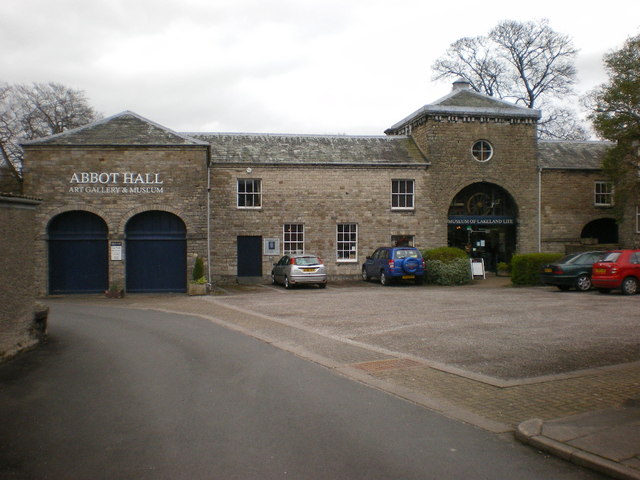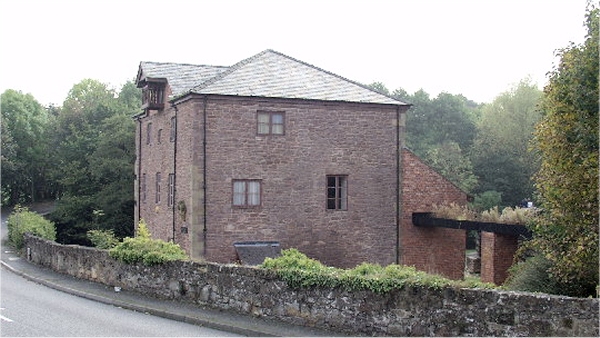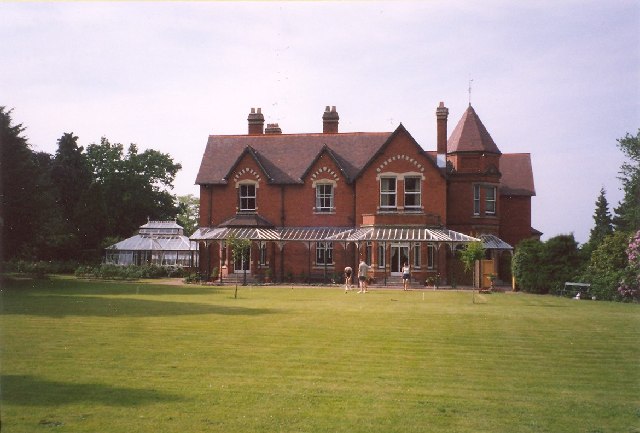|
Museum Of The Year Award
The Museum of the Year Award, formerly known as the Gulbenkian Prize and the Art Fund Prize, is an annual prize awarded to a museum or gallery in the United Kingdom for a "track record of imagination, innovation and excellence". The award of £100,000 is Britain's biggest single art prize, and the largest single museum arts prize in the world. The prize and is presented to a museum or gallery, large or small, anywhere in the UK, whose entry, in the opinion of the judges, best demonstrates a track record of imagination, innovation and excellence through work mainly undertaken during the previous calendar year. History The Museum of the Year was awarded by the British charity National Heritage from 1973 to 2000. In 2001, the Museum Prize Trust was established with the aim of creating a single award to replace this prize and three others awarded by the Museums Association, the Art Fund and the Campaign for Museums. The Gulbenkian Prize, as this was known, was first awarded in 200 ... [...More Info...] [...Related Items...] OR: [Wikipedia] [Google] [Baidu] |
Art Fund
Art Fund (formerly the National Art Collections Fund) is an independent membership-based British charity, which raises funds to aid the acquisition of artworks for the nation. It gives grants and acts as a channel for many gifts and bequests, as well as lobbying on behalf of museums and galleries and their users. It relies on members' subscriptions and public donations for funds and does not receive funding from the government or the National Lottery. Since its foundation in 1903 the Fund has been involved in the acquisition of over 860,000 works of art of every kind, including many of the most famous objects in British public collections, such as Velázquez's ''Rokeby Venus'' in the National Gallery, Picasso's '' Weeping Woman'' in the Tate collection, the Anglo-Saxon Staffordshire Hoard in Birmingham Museum and Art Gallery and the medieval Canterbury Astrolabe Quadrant in the British Museum. History The original idea for an arts charity can be traced to a lecture given by J ... [...More Info...] [...Related Items...] OR: [Wikipedia] [Google] [Baidu] |
Singleton, West Sussex
Singleton is a village, Parish, Anglican parish and civil parish in the Chichester (district), Chichester Districts of England, district of West Sussex, England. It lies in the River Lavant, West Sussex, Lavant valley, miles north of Chichester on the A286 road, A286 road to Midhurst. The village name is derived from the Anglo-Saxon 'sengel', which means "burnt clearing". The civil parish has a land area of . In the 2001 census there were 199 households containing 476 people, of whom 199 were economically active. The population marginally increased to 480 at the 2011 Census. History The village name is derived from the Anglo-Saxon 'sengel', which means "burnt clearing". Singleton (''Silletone'') was listed in the Domesday Book (1086) as the ancient Hundred (county division), hundred of the same name with 237 households including the settlements of East Lavant, Mid Lavant, Binderton and Preston. In Singleton parish itself there were 167 households: 89 villagers, 58 smallholders ... [...More Info...] [...Related Items...] OR: [Wikipedia] [Google] [Baidu] |
Saint Peter Port
St. Peter Port (french: Saint-Pierre Port) is a town and one of the ten parishes on the island of Guernsey in the Channel Islands. It is the capital of the Bailiwick of Guernsey as well as the main port. The population in 2019 was 18,958. St. Peter Port is a small town (commonly referred to by locals as just "town") consisting mostly of steep narrow streets and steps on the overlooking slopes. It is known that a trading post/town existed here before Roman times with a pre-Christian name which has not survived. The parish covers an area of 6.5 km2. The postal code for addresses in the parish starts with GY1. People from St. Peter Port, were nicknamed "les Villais" (the townspeople) or "cllichards" in Guernésiais. Geography St. Peter Port is on the east coast of Guernsey overlooking Herm and tiny Jethou, a further channel separates Sark and surrounding islets such as Brecqhou; exceptionally Normandy's long Cotentin Peninsula and, to the south-east, Jersey are visible in ... [...More Info...] [...Related Items...] OR: [Wikipedia] [Google] [Baidu] |
Guernsey
Guernsey (; Guernésiais: ''Guernési''; french: Guernesey) is an island in the English Channel off the coast of Normandy that is part of the Bailiwick of Guernsey, a British Crown Dependency. It is the second largest of the Channel Islands, an island group roughly north of Saint-Malo and west of the Cotentin Peninsula. The jurisdiction consists of ten parishes on the island of Guernsey, three other inhabited islands ( Herm, Jethou and Lihou), and many small islets and rocks. It is not part of the United Kingdom, although defence and some aspects of international relations are managed by the UK. Although the bailiwicks of Jersey and Guernsey are often referred to collectively as the Channel Islands, the "Channel Islands" are not a constitutional or political unit. Jersey has a separate relationship to the Crown from the other Crown dependencies of Guernsey and the Isle of Man, although all are held by the monarch of the United Kingdom. The island has a mixed British-Norm ... [...More Info...] [...Related Items...] OR: [Wikipedia] [Google] [Baidu] |
Museum Of London
The Museum of London is a museum in London, covering the history of the UK's capital city from prehistoric to modern times. It was formed in 1976 by amalgamating collections previously held by the City Corporation at the Guildhall, London, Guildhall Museum (founded in 1826) and of the London Museum (1912–1976), London Museum (founded in 1912). From 1976 to 4 December 2022 its main site was located in the City of London on the London Wall, close to the Barbican Centre, as part of the Barbican complex of buildings created in the 1960s and 1970s to redevelop a bomb-damaged area of the city. The museum has the largest urban history collection in the world, with more than six million objects. That site was a few minutes' walk north of St Paul's Cathedral, overlooking the remains of the Roman city wall and on the edge of the oldest part of London, now its main financial district. It is primarily concerned with the social history of London and its inhabitants throughout time. The ... [...More Info...] [...Related Items...] OR: [Wikipedia] [Google] [Baidu] |
The Museum Of London Building In 2019
''The'' () is a grammatical article in English, denoting persons or things already mentioned, under discussion, implied or otherwise presumed familiar to listeners, readers, or speakers. It is the definite article in English. ''The'' is the most frequently used word in the English language; studies and analyses of texts have found it to account for seven percent of all printed English-language words. It is derived from gendered articles in Old English which combined in Middle English and now has a single form used with pronouns of any gender. The word can be used with both singular and plural nouns, and with a noun that starts with any letter. This is different from many other languages, which have different forms of the definite article for different genders or numbers. Pronunciation In most dialects, "the" is pronounced as (with the voiced dental fricative followed by a schwa) when followed by a consonant sound, and as (homophone of pronoun ''thee'') when followed by a v ... [...More Info...] [...Related Items...] OR: [Wikipedia] [Google] [Baidu] |
Wrexham
Wrexham ( ; cy, Wrecsam; ) is a city and the administrative centre of Wrexham County Borough in Wales. It is located between the Welsh mountains and the lower Dee Valley, near the border with Cheshire in England. Historically in the county of Denbighshire, and later the county of Clwyd in 1974, it has been the principal settlement of Wrexham County Borough since 1996. Wrexham has historically been one of the primary settlements of Wales. At the 2011 Census, it had an urban population of 61,603 as part of the wider Wrexham built-up area which made it Wales's fourth largest urban conurbation and the largest in north Wales. The city comprises the local government communities of Acton, Caia Park, Offa and Rhosddu. Wrexham's built-up area extends further into villages like Bradley, Brymbo, Brynteg, Gwersyllt, New Broughton, Pentre Broughton and Rhostyllen. Wrexham was likely founded prior to the 11th century and developed in the Middle Ages as a regional centre for t ... [...More Info...] [...Related Items...] OR: [Wikipedia] [Google] [Baidu] |
Erddig Hall
Erddig Hall ( cy, Neuadd Erddig; or simply Erddig; ) is a Grade-I listed National Trust property in Wrexham, Wales. Standing south of Wrexham city centre, it comprises a country house built during the 17th and 18th centuries amidst a 1,900 acre estate, which includes a 1,200-acre landscaped pleasure park and the earthworks of a Norman motte-and-bailey castle. Erddig has been described as 'the most evocative Upstairs Downstairs house in Britain' due to the well-rounded view it presents of the lifestyles of all of its occupants, both family and staff. The eccentric Yorke family had an unusual relationship with their staff and celebrated their servants in a large and unique collection of portraits and poems. This collection, coupled with well-preserved servants' rooms and an authentic laundry, bakehouse, sawmill, and smithy, provide an insight into how 18th to 20th century servants lived. The state rooms contain fine furniture, textiles and wallpapers and the fully restored wall ... [...More Info...] [...Related Items...] OR: [Wikipedia] [Google] [Baidu] |
Erddig Hall (14513467238)
Erddig Hall ( cy, Neuadd Erddig; or simply Erddig; ) is a Grade-I listed National Trust property in Wrexham, Wales. Standing south of Wrexham city centre, it comprises a country house built during the 17th and 18th centuries amidst a 1,900 acre estate, which includes a 1,200-acre landscaped pleasure park and the earthworks of a Norman motte-and-bailey castle. Erddig has been described as 'the most evocative Upstairs Downstairs house in Britain' due to the well-rounded view it presents of the lifestyles of all of its occupants, both family and staff. The eccentric Yorke family had an unusual relationship with their staff and celebrated their servants in a large and unique collection of portraits and poems. This collection, coupled with well-preserved servants' rooms and an authentic laundry, bakehouse, sawmill, and smithy, provide an insight into how 18th to 20th century servants lived. The state rooms contain fine furniture, textiles and wallpapers and the fully restored wall ... [...More Info...] [...Related Items...] OR: [Wikipedia] [Google] [Baidu] |
Telford
Telford () is a town in the borough of Telford and Wrekin and ceremonial county of Shropshire, England, about east of Shrewsbury, south west of Stafford, north west of Wolverhampton and from Birmingham in the same direction. With an estimated population (for the borough) of 175,271 in 2017 and 142,723 in Telford itself, Telford is the largest town in Shropshire and one of the fastest-growing towns in the United Kingdom. It is named after the civil engineer Thomas Telford, who engineered many road, canal and rail projects in Shropshire. The town was put together in the 1960s and 1970s as a new town on previously industrial and agricultural land and towns. Like other planned towns of the era, Telford was created from the merger of other settlements and towns, most notably the towns of Wellington, Oakengates, Madeley and Dawley. Telford Shopping Centre, a modern shopping mall, was constructed at the new town's geographical centre, along with an extensive Town Park. Th ... [...More Info...] [...Related Items...] OR: [Wikipedia] [Google] [Baidu] |
Ironbridge Gorge Museum Trust
The Ironbridge Gorge Museum Trust is an industrial heritage organisation which runs ten museums and manages multiple historic sites within the Ironbridge Gorge World Heritage Site in Shropshire, England, widely considered as the birthplace of the Industrial Revolution. The Gorge includes a number of settlements important to industrial history and with heritage assets, including Ironbridge, Coalport and Jackfield along the River Severn, and also Coalbrookdale and Broseley. The area was among the first sites in the United Kingdom to be declared a World Heritage Site by UNESCO in 1986. Museums The ten museum sites run by the Trust, collectively known as The Ironbridge Gorge Museums are: # Blists Hill Victorian Town, including the Hay Inclined Plane # Broseley Pipeworks # Coalbrookdale Museum of Iron # Coalport China Museum # Tar Tunnel # Darby Houses # Enginuity # Iron Bridge and Tollhouse # Jackfield Tile Museum # Museum of the Gorge The Trust The Ironbridge Gorge Museum Tr ... [...More Info...] [...Related Items...] OR: [Wikipedia] [Google] [Baidu] |
Museum Of The Gorge, Ironbridge - Geograph
A museum ( ; plural museums or, rarely, musea) is a building or institution that cares for and displays a collection of artifacts and other objects of artistic, cultural, historical, or scientific importance. Many public museums make these items available for public viewing through exhibits that may be permanent or temporary. The largest museums are located in major cities throughout the world, while thousands of local museums exist in smaller cities, towns, and rural areas. Museums have varying aims, ranging from the conservation and documentation of their collection, serving researchers and specialists, to catering to the general public. The goal of serving researchers is not only scientific, but intended to serve the general public. There are many types of museums, including art museums, natural history museums, science museums, war museums, and children's museums. According to the International Council of Museums (ICOM), there are more than 55,000 museums in 202 count ... [...More Info...] [...Related Items...] OR: [Wikipedia] [Google] [Baidu] |




.jpg)
.png)




